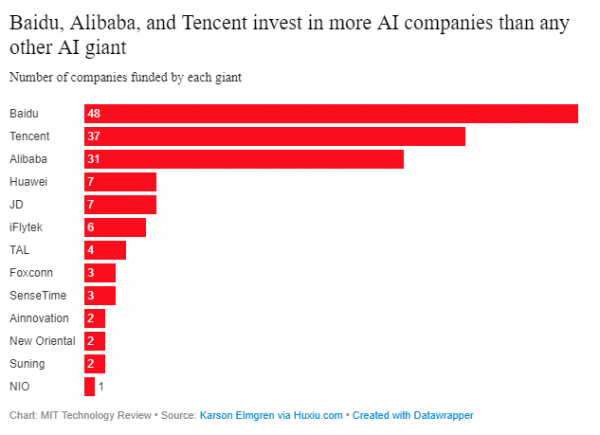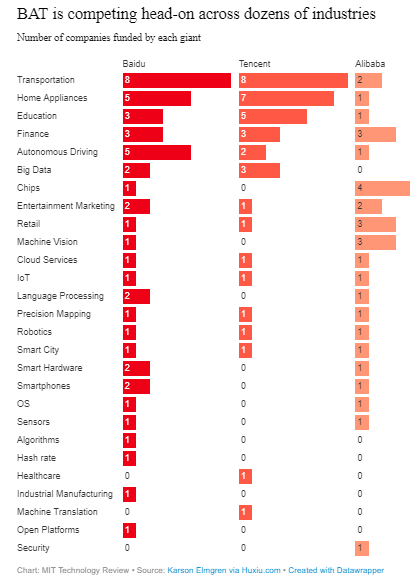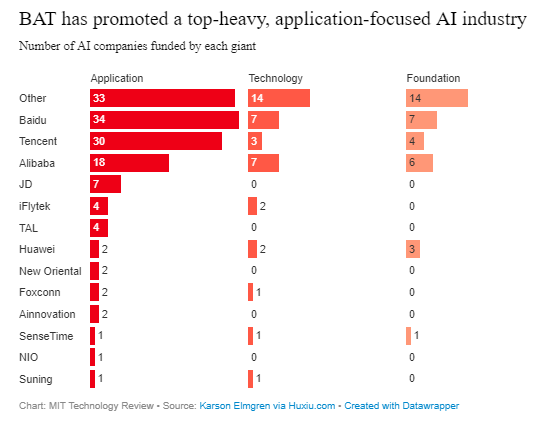Baidu, Alibaba, and Tencent, the three Chinese tech goliaths freely proportionate to Google, Amazon, and Facebook, are not simply creating and sending AI themselves.
A week ago, Chinese news source Huxiu.com distributed a realistic that outlines the full degree of their inclusion over China’s AI industry. It uncovered that BAT puts resources into 53% of the country’s 190 noteworthy AI organizations. This may not shock those of you who intently pursue China’s AI biological system. Be that as it may, it’s a significant distinctive topology for those increasingly comfortable with Silicon Valley’s.
Baidu, Alibaba, and Tencent put resources into more AI organizations than some other AI monster.

Taken a gander at one way, the scene demonstrates how seriously these organizations are endeavoring to excel over each other. While every company a primary specialized topic—Alibaba in the internet business, Tencent in person to person communication, and Baidu in inquiry and data ordering—they are additionally testing each other head-on crosswise over many enterprises.

Taken a gander at another way, the size of BAT’s contribution demonstrates exactly how essential the three organizations are to China’s bid to be a worldwide pioneer in AI by 2030. Their skills and financing set the bearing and pace of the innovation’s improvement, yet their shortcomings additionally help decide how likely China is to reach its goals.

As the realistic features, BAT’s speculations have advanced a best substantial AI industry: loads of organizations devoted to AI applications with far less committed to building up the advances that support it, including the calculations and propelled silicon chips behind the achievements in machine vision, regular dialect handling, and other AI abilities.
Specialists have cautioned about this best greatness previously. China’s galactic ascent in AI authority is at present floated by its bounty of information and careless perspectives on security. Temporarily, both those conditions make it ripe ground for exceptionally gainful machine-learning applications. In any case, the nation still lingers behind the US in its endeavors to extend existing AI capacities through central research. In the long haul, that could put a roof on the amount China will keep on profiting from AI.
Because artificial intelligence is developed for personal and business use, it is important to ensure that artificial intelligence technology does not have the risks of abuse, errors, or loss of control. This is also the content of Layer 7 in the 7-layer AIWS Model, which is being implemented by the Michael Dukakis Institute for Leadership and Innovation (MDI). Through Layer 7 in particular and the whole model in general, AIWS hopes to ensure the inclusion of AI in life and bring positive impacts.










